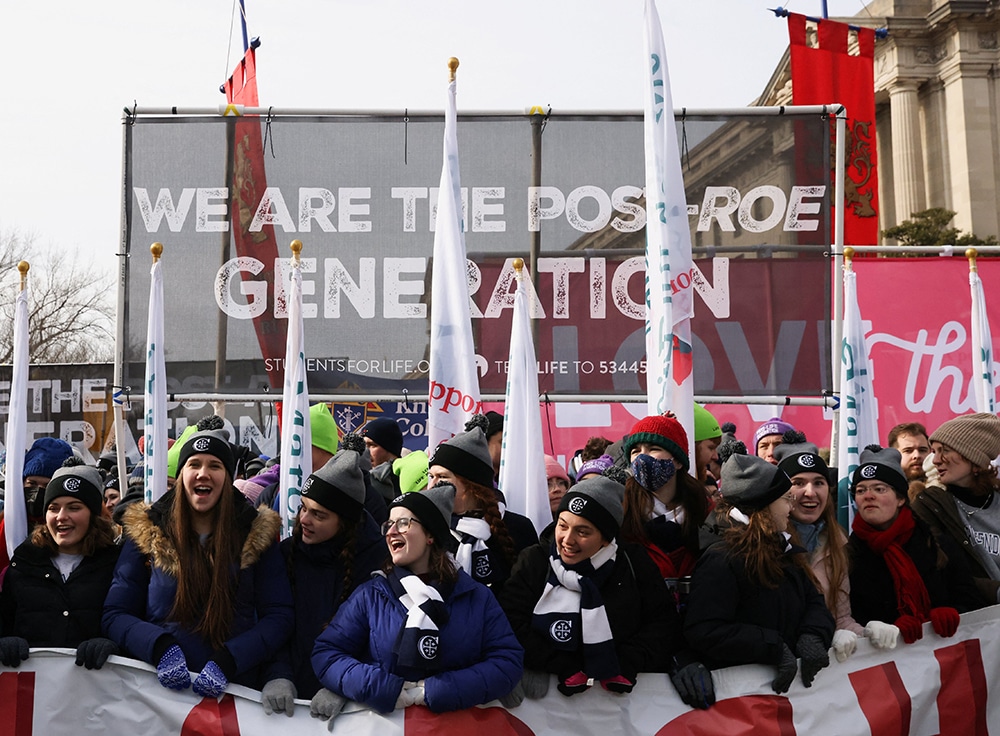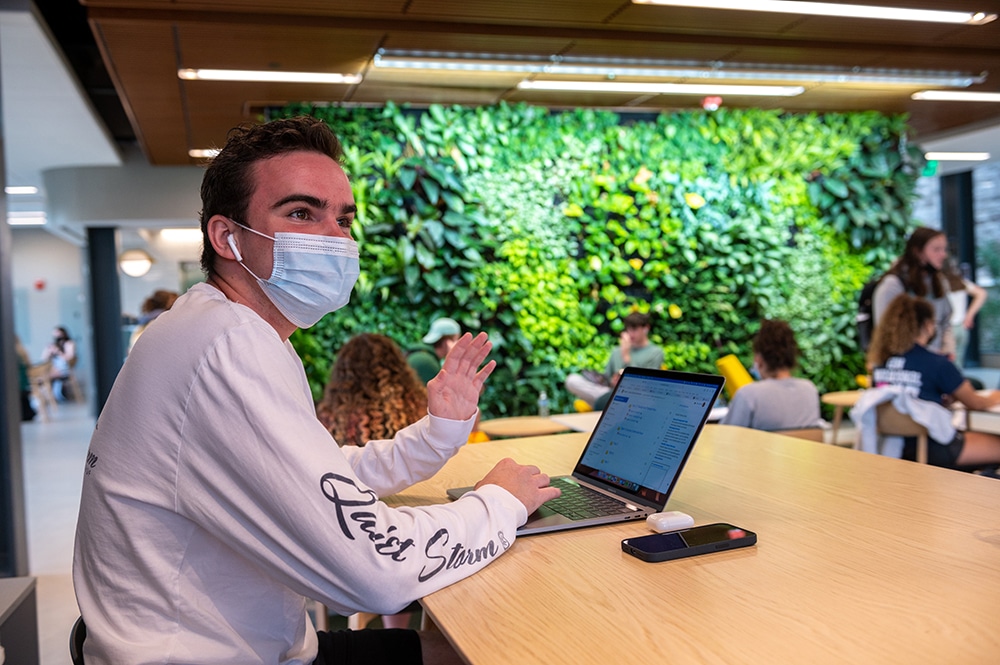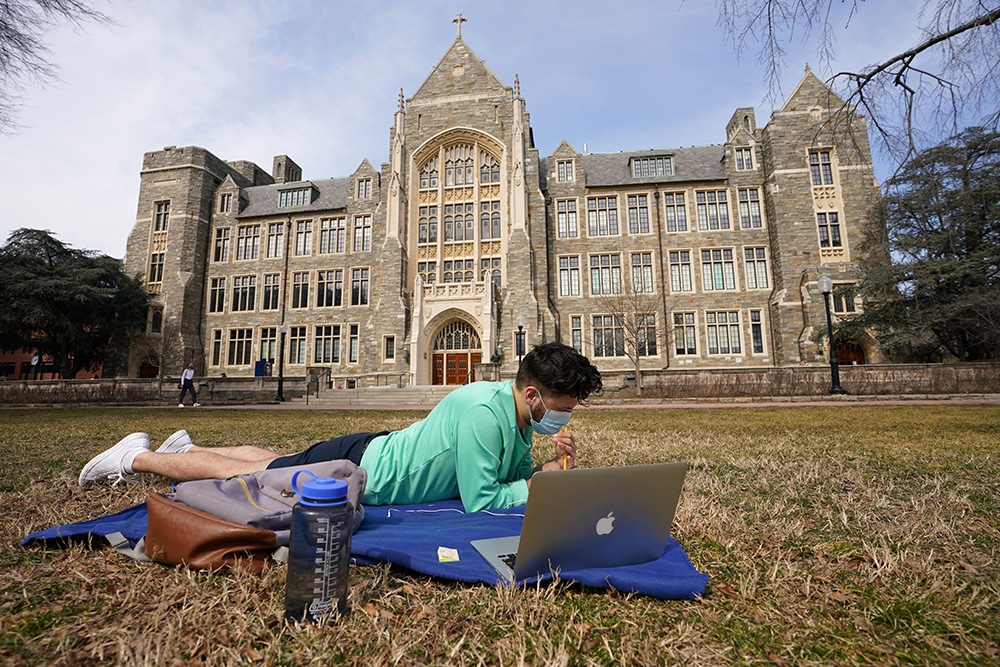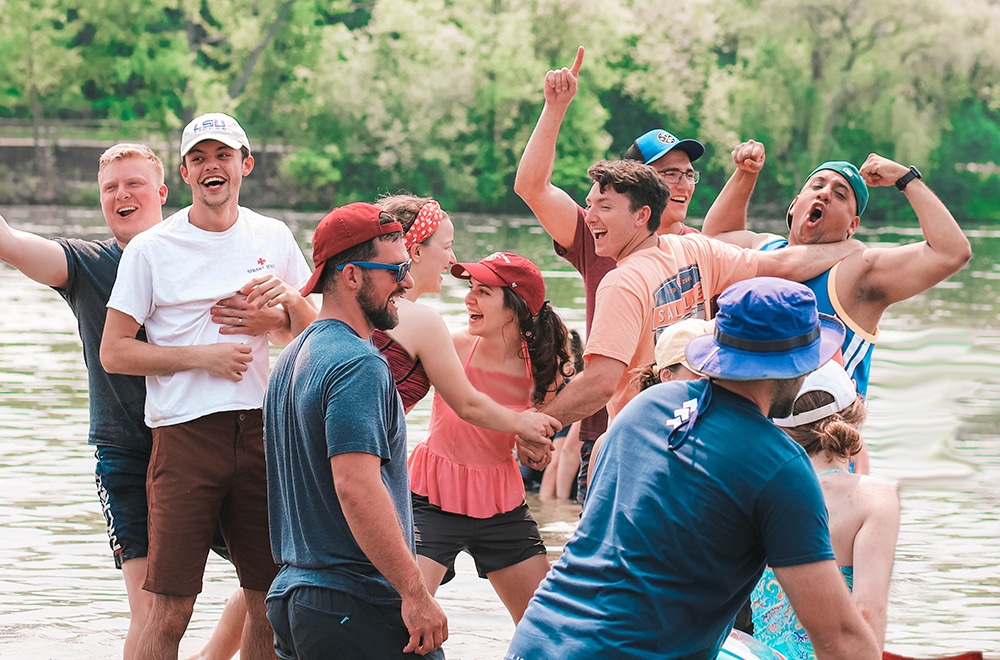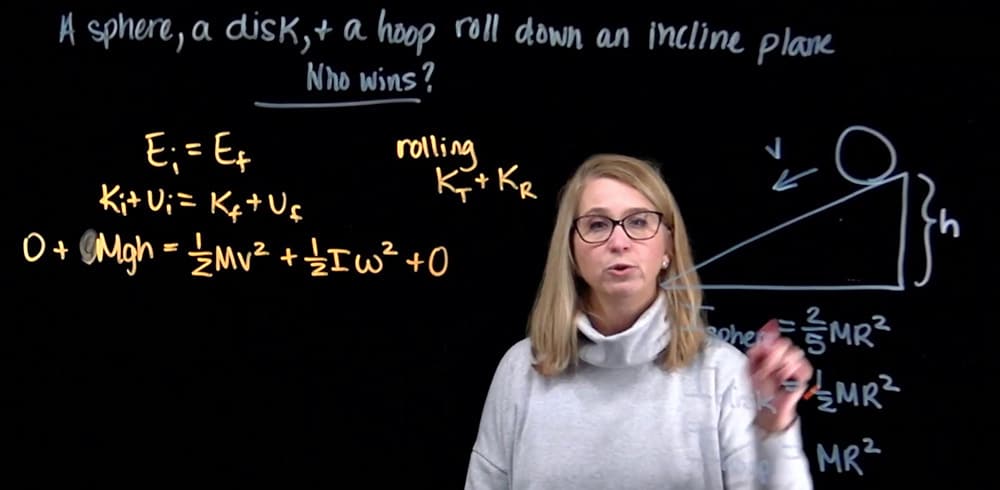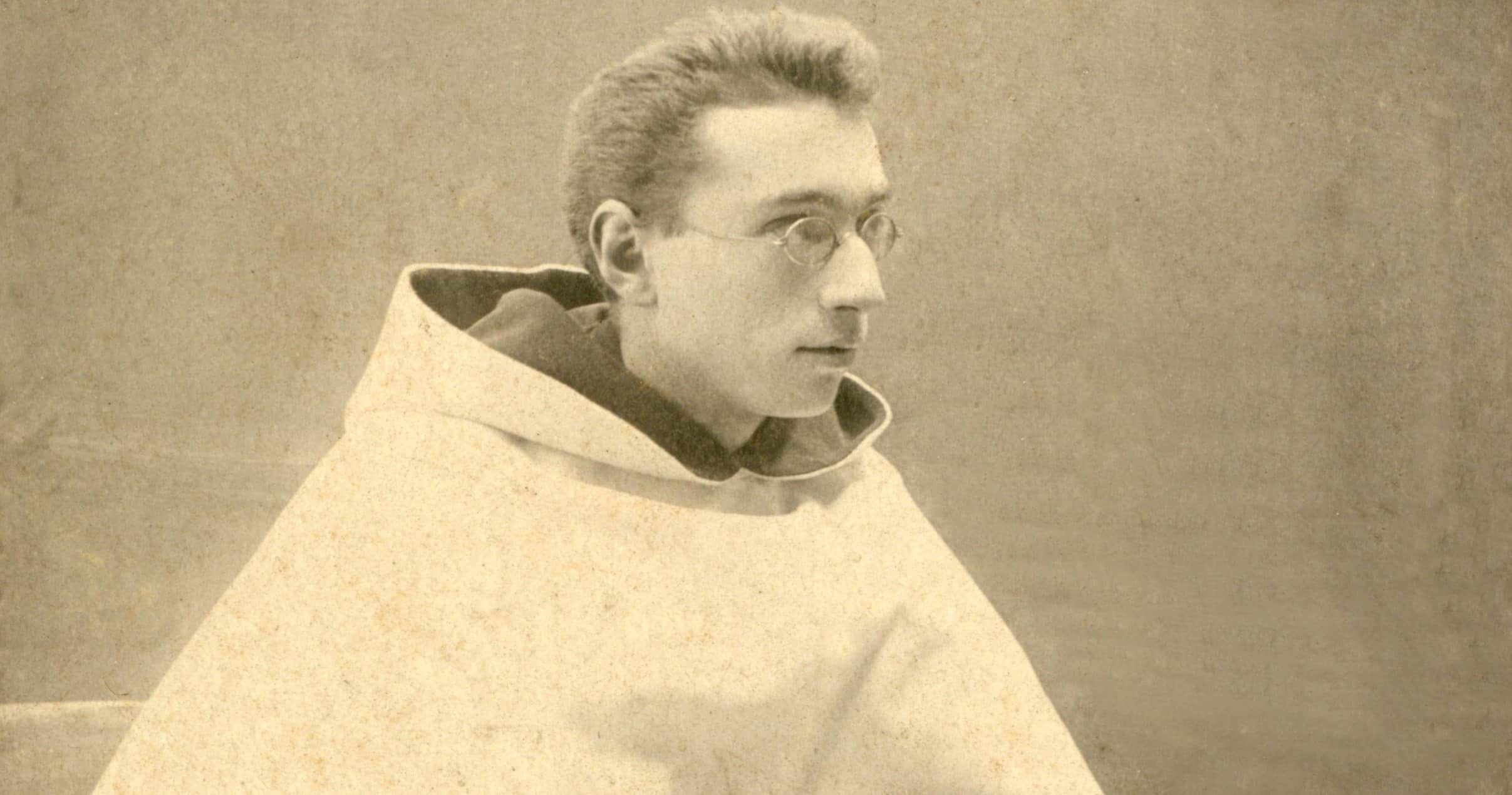The Revolutionary War and Civil War were divisive, the Reformation and Counter-Reformation split the Church apart, and in more modern times, the civil rights movement and the sexual revolution had — and still have — people taking sides.
These days, there are divisions between liberal and conservative politics, vaxxers and anti-vaxxers, and pro-life versus pro-choice advocates, just to name a few.
Benjamin J. Helget, an alum and a residence director at the University of Mary in Bismarck, North Dakota, noted those and other historical times that caused great division: The Holocaust, Christian persecution in the Roman Empire, and even the quarrel between Cain and Able in the Old Testament.
Read more from our special college section here.
“These reveal that the division among mankind has existed since the Fall,” he said. “Therefore, I do not think it is true that people are more divided than say 100 or 1,000 years ago, but I do think that there has been a significant shift in how division is communicated and perceived. In the digital age, we have immediate access to endless streams of information sources.”
‘Who you are and what you believe’
With young people so connected to an instant overload of news and commentary, there’s bound to be an influence on their opinions on matters that are also influenced by life experiences. So it’s no surprise that they go off to college with ideas that may or may not be shared by their peers.
The result, Helget noted, can cause arguments based on opinions that “position themselves as vehemently opposed to others in an unproductive manner,” leading to a perception that we are more divided than ever.
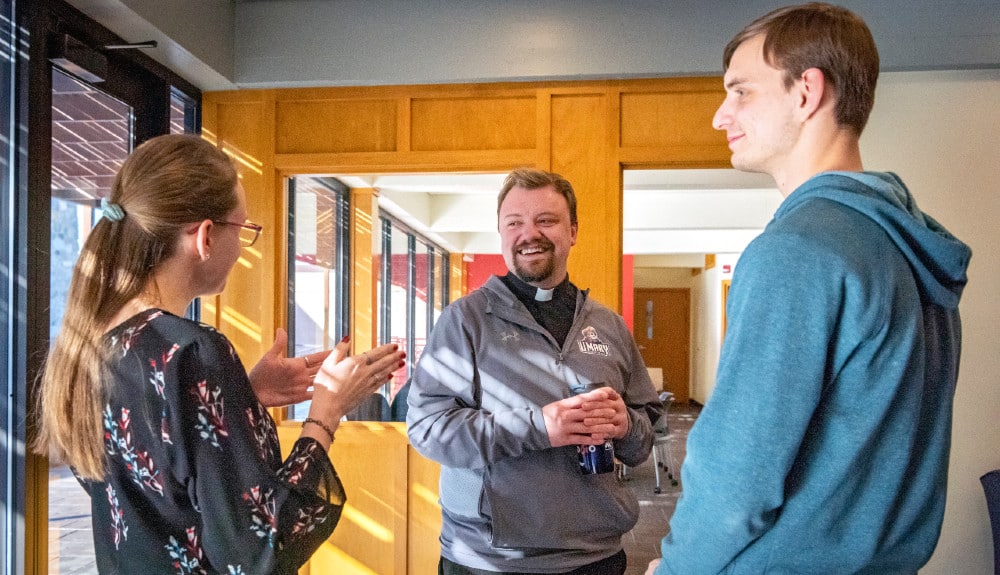
That can be a challenge at Catholic colleges and universities that, these days, attract students of all faiths or no faith at all, and from so many different backgrounds. Even Catholic students may not agree among themselves.
“The division in our culture is not unprecedented, but by no means insignificant,” Helget said. “The culture still needs to be engaged with, but in the right way. You first need to know who you are and what you believe. The University of Mary is faithfully Christian, joyfully Catholic and gratefully Benedictine. This is an institution with great integrity that is who it says it is.”
The second thing those at Catholic colleges need to do, Helget said, is to engage in a cultural discussion with the willingness to acknowledge and understand those with different viewpoints without the desire to “pounce or get” them.
“Prudently, the University of Mary recognized that the issues at hand were not really about race, ethnicity, political party, policy, etc., but rather an issue concerning the dignity of the human person,” Helget said. “Therefore, the response was not to get into an effective debate, but rather to respond in a manner in line with who we are, that promotes the absolute respect of human dignity.”
The university’s Life and Dignity Week in January promoted formational dialogue around Martin Luther King Jr. Day, the Mid-Winter Pow-Wow that offers students the chance to experience the heritage of the local Native American population, presentations on disability, sexuality, women’s rights and gender issues, as well as participation in the state and national March For Life.
“We seek to help our students not to simply believe the right things, but rather to know why they believe them and to engage in real dialogue in the service of truth,” he said.
Helget added that the culture needs to be transformed, but not through “divisive, affective and unproductive rhetoric.” Rather, he noted, “We need young men and women of integrity that are going to engage with culture and the pursuit of truth. The truth will set you free.”
‘An understanding of their dignity’
Benedictine Father Dominic Bouck is chaplain and director of university ministry at the University of Mary and an instructor in Catholic studies.
“The fracturing of the world in the breakdown of the family, the crumbling of our educational discourse, political upheaval and Church division brings students from a variety of backgrounds and with a host of varying experiences and ability to cope with the vicissitudes of life,” Father Bouck said.
The Benedictine founding and grounding, he added, helps the university to be a stabilizing influence in the lives of the students and provides a structure and foundation “primarily in Christ, his Church, the study of truth and teaching of skills.”
Intentional relationships with the university ministry, Catholic studies, active residence halls and many other aspects of campus life bring a student to the true integration of the whole person.
“The student comes to an understanding of their dignity and worth while being equipped to engage modern issues with the wisdom of the ages,” Father Bouck said.
Forming ‘the tools to engage’
Only 30% of students at Seton Hill University in Greensburg, Pennsylvania, are Catholic, down from 48% when Sister of Charity Maureen O’Brien, vice president of mission and identity, came to the campus 12 years ago.
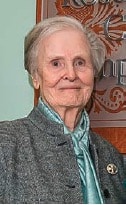
“One of the challenges that many Catholic colleges are dealing with today is the decreased Catholic population,” she said. “So the question is, how do we maintain a robust Catholic identity and serve the needs of students who are not Catholic? We are called to serve the spiritual needs of all of our students in an environment that is holistic in education, mind, heart and body — the whole person.”
The university maintains its Catholic identity by focusing on the history of its founders, the Sisters of Charity of Seton Hill, who have a mission of service and social teaching.
“In the spirit of St. Elizabeth Seton, we prepare students for the world in which they are destined to live, and part of that is dealing with different opinions, different points of view,” Sister Maureen said. “They really have to be prepared and have the tools to engage in creative conversations with people who don’t think the way they do.”
There’s a presidential task force on diversity, equity and inclusion that addresses, among other things, how to help students of color to feel included.
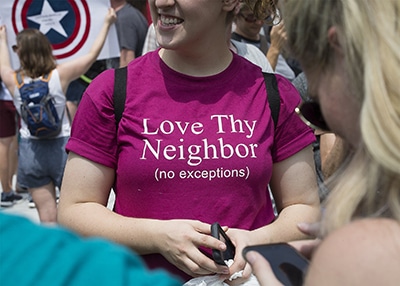
“We are also developing a program on Truth Finding,” she said. “How do I know what is true when I am reading an article, and what are some of the tools that help me to determine what is true and what is fake news? How do I analyze it? How do I arrive at a balanced point of view? How do I arrive at the truth? Catholic education has a tradition in the search for truth.”
The university prepares students to be critical thinkers outside the classroom, too, with programs like Coffee Talk where students can participate in discussions on relevant world topics.
“I think dialogue is really an important part of a liberal arts education,” Sister Maureen said.
Maryann Gogniat Eidemiller writes from Pennsylvania.

